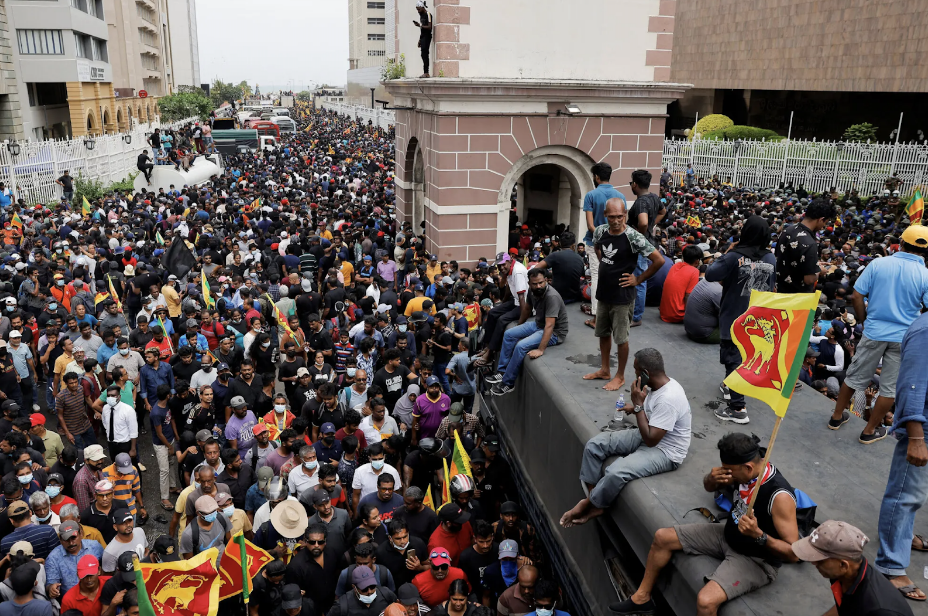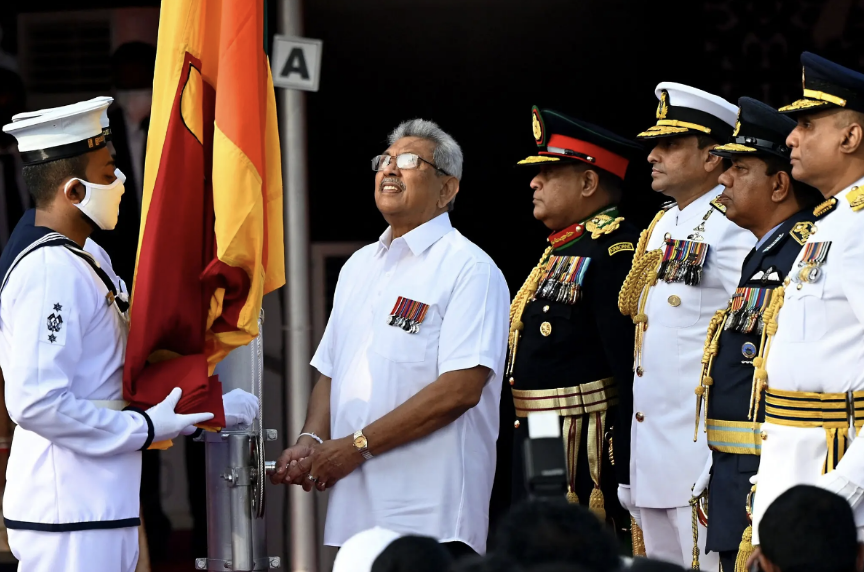Presidential Turbulence: Sri Lanka’s Economic Crises
Protesters at the residence of President Gotabaya Rajapaksa of Sri Lanka in the capital, Colombo. Photo: The New York Times
Sri Lanka’s economy continues to face soaring inflation and a shortage of essential goods such as fuel, medicine, and food. Many Sri Lankans struggle to buy basic supplies given that prices have doubled or tripled in recent months.
These issues were instigated when Sri Lanka’s Parliament elected longtime politician Ranil Wickremesinghe as the nation’s new president through a secret ballot. Previously, Wickremesinghe served as prime minister to the former president Gotabaya Rajapaksa, who promptly fled the country as a result of months of protests demanding his resignation.
During interviews, Wickremesinghe signaled plans to tackle the nation’s economic crises. Wickremesinghe has made some progress in terms of negotiating with the International Monetary Fund (IMF), yet when viewing the net decrease of the country’s foreign reserves, many continue questioning the feasibility of returning the country’s economy to where it once stood. In November 2019, the country’s foreign reserves stood at nearly $8 billion, and by December 2021, it had fallen to less than $2 billion. COVID-19 and the series of lockdowns paralyzed the economy even further.
Analysis conducted by the World Food Program indicated that 86 percent of families were struggling to find meals to eat on a daily basis or were getting accustomed to buying lower-quality food due to their inability to cope with the current economic crises. Experts estimate that acute malnutrition is going to rise from 13 percent to 20 percent while the number of malnourished children is expected to double from 35,000 to 70,000.
President Gotabaya Rajapaksa, second left, was defense secretary during the final years of Sri Lanka’s brutal civil war. Photo: The New York Times
Wickremesinghehe has promised to build Sri Lanka’s economy to a level comparable to Sinagpore’s by 2048. However, Sri Lanka’s growing debt-to-GDP ratio of 120 percent makes it challenging for citizens to remain optimistic.
Sri Lankans blame Rajapaksa’s government for what they believe to be their worst economic crisis in history given sharp increases in food and fuel costs.
Rajapaksan and his elder brother, Mahinda Rajapaksa, have dominated Sri Lankan politics for years. He has become the first president in Sri Lanka’s post-independence period to be pushed out of office by popular uprisings, yet he continued promising an avalanche of reforms that he hoped to implement in the coming months. He shared plans of raising income taxes, with hopes of reaching pre-pandemic rates in order to fight inflation. Additionally, he planned to widen the tax base by selling state-owned enterprises including national airlines, petroleum corporations, and the government’s stake in the national telecoms firm.
As a former military officer, Rajapaksa was elected on the basis that he would uplift the country’s economy and ensure national security which was a top priority after a bomb attack occurred on Easter Sunday in 2019, killing over 270 people in churches and hotels. Rajapaksa’s promises entailed not only helping the economy recover but also elevating it to become more competitive and export-oriented.
Seemingly, many Sri Lankans are running out of patience granted the economy’s trajectory remains far off from these goals. Meenakshi Ganguly, South Asia director at the Human Rights Watch states, “Sri Lanka’s partners have been clear that international economic assistance will only be effective if the government adheres to human rights and the rule of law and addresses the root causes of the crisis.”


